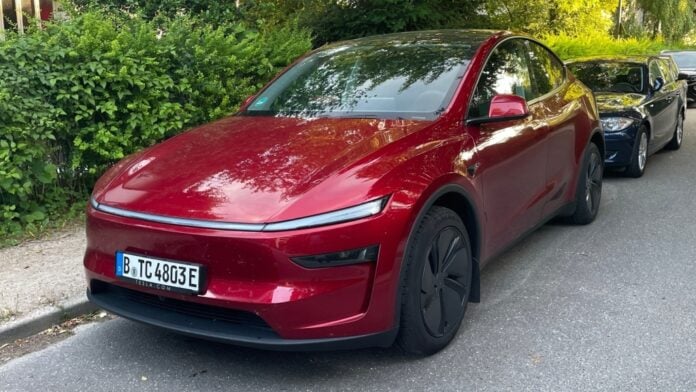“Electric vehicle owners are currently enjoying a significant tax break.” This financial incentive has become a focal point in discussions surrounding the future of transportation and environmental responsibility. As governments worldwide push for greener alternatives, the implications of such tax exemptions extend beyond mere savings. With the automotive industry undergoing a profound transformation, many consumers are left wondering: what does this mean for the future of electric vehicles and their adoption rates?
As traditional combustion engines face increasing scrutiny and regulations, the rise of electric vehicles (EVs) presents both opportunities and challenges. The recent confirmation of tax exemptions for EV owners has sparked interest among potential buyers, making the transition to electric more appealing. However, this policy shift raises questions about sustainability, infrastructure, and long-term viability. Are these incentives enough to drive widespread adoption, or will they merely serve as a temporary fix in a rapidly evolving market?
The Current Landscape of Electric Vehicle Tax Exemptions
Electric vehicle tax exemptions have become a vital aspect of promoting greener transportation options. These incentives vary widely across different states and regions, reflecting local government priorities and environmental goals. In the United States, federal tax credits can reach up to $7,500 for qualifying electric vehicles, while additional state incentives may further enhance savings. This financial support plays a crucial role in making EVs more accessible to the average consumer, who might otherwise hesitate due to higher upfront costs compared to traditional vehicles.
Recent data indicates that electric vehicle sales have surged in the past few years, with a notable increase in consumer interest. According to the latest reports, EV sales in the U.S. Accounted for approximately 5% of total vehicle sales in 2022, a significant jump from previous years. This trend is expected to continue as more manufacturers enter the market and offer diverse models. The tax exemptions serve as a catalyst for this growth, encouraging potential buyers to consider electric vehicles as a viable alternative.
However, the sustainability of these tax incentives remains a topic of discussion. As more individuals transition to electric vehicles, the potential for reduced tax revenues could impact government funding for infrastructure and other essential services. Policymakers must strike a balance between promoting electric vehicle adoption and ensuring that public resources remain adequately funded. This dynamic presents both challenges and opportunities for future legislative efforts aimed at supporting sustainable transportation.
Implications for Consumers and the Automotive Industry
The confirmation of tax exemptions for electric vehicle owners has significant implications for consumers and the automotive industry alike. For consumers, these incentives not only reduce the cost of purchasing an electric vehicle but also contribute to long-term savings on fuel and maintenance. Electric vehicles typically have lower operating costs compared to their gasoline counterparts, making them an attractive option for budget-conscious buyers. Additionally, as charging infrastructure continues to expand, the convenience of owning an EV is expected to improve, further enticing consumers.
For the automotive industry, the shift towards electric vehicles represents a monumental change. Traditional automakers are investing heavily in electric technology, with many pledging to transition their entire fleets to electric models within the next decade. This shift necessitates a reevaluation of manufacturing processes, supply chains, and marketing strategies. As competition intensifies, companies must innovate to differentiate their products and meet evolving consumer demands.
Moreover, the growing popularity of electric vehicles has prompted discussions about the future of fossil fuels and their role in the transportation sector. As more consumers opt for electric vehicles, the demand for gasoline may decline, leading to potential shifts in energy markets. This transformation could have far-reaching consequences for economies reliant on oil production, necessitating strategic planning and adaptation.
The Future of Electric Vehicles and Tax Incentives
Looking ahead, the future of electric vehicles and tax incentives appears promising yet uncertain. As governments continue to prioritize environmental sustainability, the likelihood of maintaining or expanding tax exemptions for electric vehicle owners remains high. This commitment to green policies could encourage further investment in renewable energy sources and charging infrastructure, essential components for supporting widespread EV adoption.
However, challenges persist. The automotive industry must address concerns related to battery production, recycling, and the environmental impact of mining for essential materials. As demand for electric vehicles rises, so too does the need for sustainable practices in sourcing and manufacturing. Companies that prioritize eco-friendly approaches may find themselves better positioned in an increasingly competitive market.
Additionally, the role of consumer education cannot be overlooked. As electric vehicles become more mainstream, potential buyers must be informed about the benefits and limitations of EV ownership. Understanding charging options, maintenance needs, and available incentives will empower consumers to make informed decisions, ultimately driving the market forward.
Broader Environmental and Economic Considerations
The implications of tax exemptions for electric vehicle owners extend beyond individual savings and consumer choices. These incentives play a crucial role in addressing broader environmental concerns, particularly in the fight against climate change. By encouraging the adoption of electric vehicles, governments aim to reduce greenhouse gas emissions and improve air quality, contributing to a healthier planet.
Moreover, the transition to electric vehicles has the potential to stimulate economic growth. As the EV market expands, new job opportunities will emerge in manufacturing, infrastructure development, and maintenance. The growth of this sector could lead to increased investments in research and development, fostering innovation and technological advancements.
However, the economic benefits must be carefully balanced with the challenges posed by the transition. As traditional industries face disruption, workers in fossil fuel sectors may need support in transitioning to new roles within the growing electric vehicle market. Policymakers must consider comprehensive strategies to address these shifts, ensuring a just transition for all stakeholders involved.
Overall, the landscape of electric vehicles and tax exemptions is rapidly evolving. As consumers, industries, and governments navigate this transition, the focus must remain on fostering sustainable practices and promoting a greener future for all.


